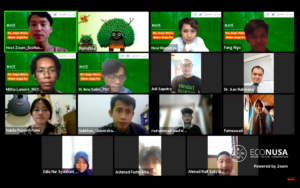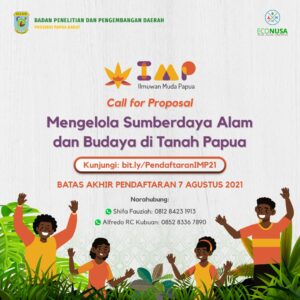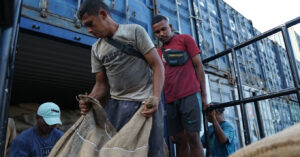
Along the southern coast of Southwest Papua, the sea holds an abundance of natural wealth. Well-preserved mangrove forests serve as breeding grounds for shrimp, crabs, and various fish species that provide both essential protein for local communities and a vital source of income.
Indigenous communities in the coastal areas of South Sorong, such as Konda, Metemani, and Inanwatan, are predominantly fishers. Their main catch is the banana shrimp, which breeds in mangrove waters before migrating to the open sea as it matures. It is in these offshore waters that the shrimp grow larger and become the primary target of the fishers.
Related Article: Boow Wanu Beta: The Customary Forest Pig Trade Business in Papua
However, the fishers’ struggles are far from simple. With basic fishing gear, they head into the open sea hoping to catch enough to sustain their families. Unpredictable weather, limited equipment, scarce fuel supplies for their boats, and the long distance to market access are daily challenges that define their livelihoods.
Market demand for shrimp continues to increase, both from local consumers and export partners who require large quantities and consistent quality. Yet, due to the difficulties faced by traditional fishers, their supply remains unable to meet market needs. Some days yield abundant catch; on others, they return with nothing. This inconsistency not only affects the fishers but also disrupts distributors and large buyers who depend on stable supply.
These circumstances are worsened by the lack of coordination among fishers and the absence of an institution dedicated to managing and consolidating their catch. As a result, the vast potential of the South Sorong marine area remains underutilized. Many opportunities are lost simply because of inefficient distribution and management systems.
Related Article: Transforming Shrimp Waste into New Hope
Recognizing the challenges faced by the fishers, EcoNusa Foundation established the Marine Station in Teminabuan, the capital of South Sorong, this year. The Teminabuan Marine Station is equipped with various facilities to support fishers, including a jetty, a boat workshop, and storage facilities designed to maintain the quality of their catch. It is here that shrimp from areas such as Konda, Isogo, and Inanwatan are gathered, weighed, sorted, and stored through a more organized system.
In Konda and Inanwatan, EcoNusa had previously built Weighing Houses as dedicated sites for purchasing shrimp from the community. In Konda, the Weighing House is managed by the Fgan Fen Sisi Cooperative, while in Inanwatan, it is managed directly by EcoNusa. Both facilities purchase shrimp from fishers at better prices and provide financial literacy training to help communities manage their income more effectively.




